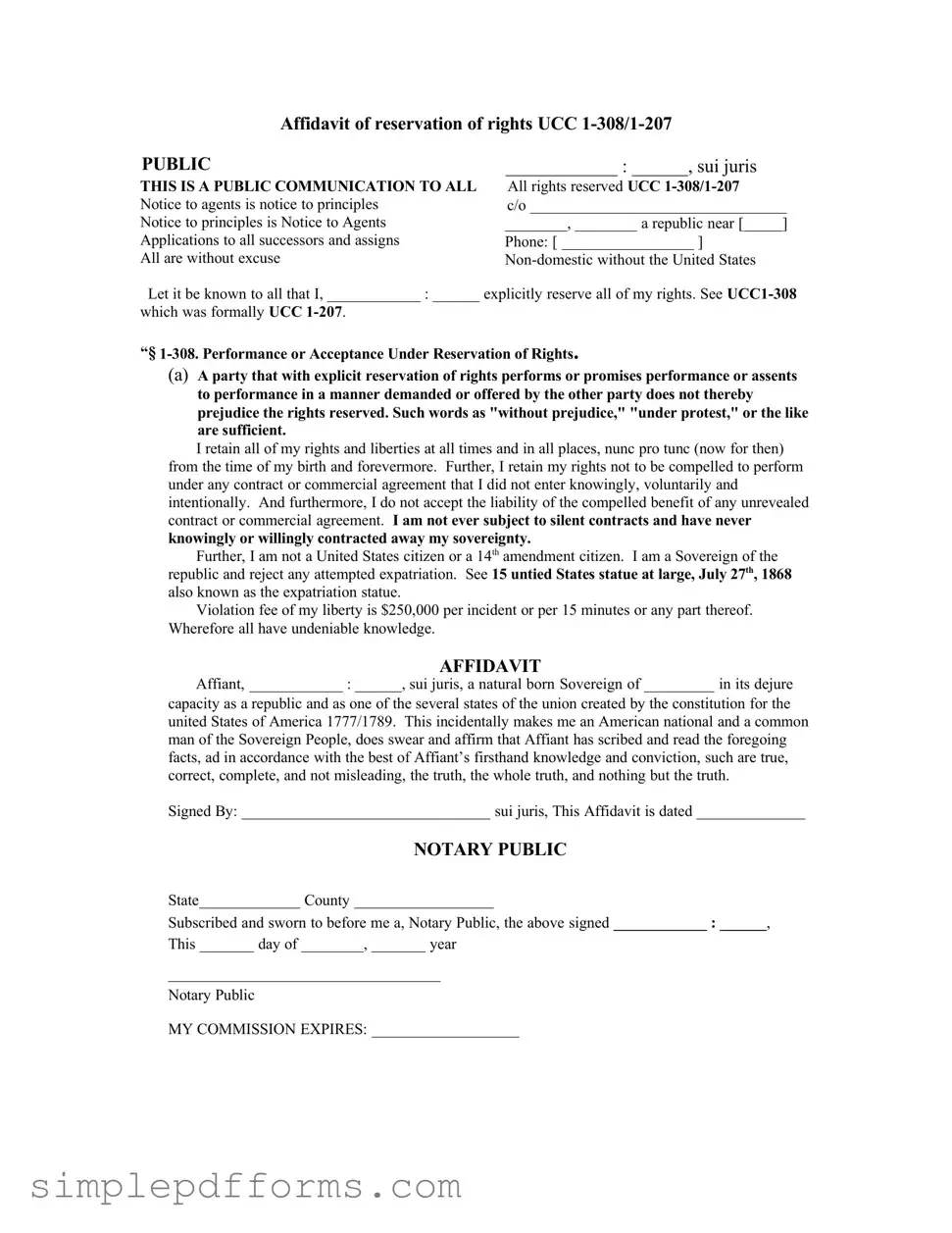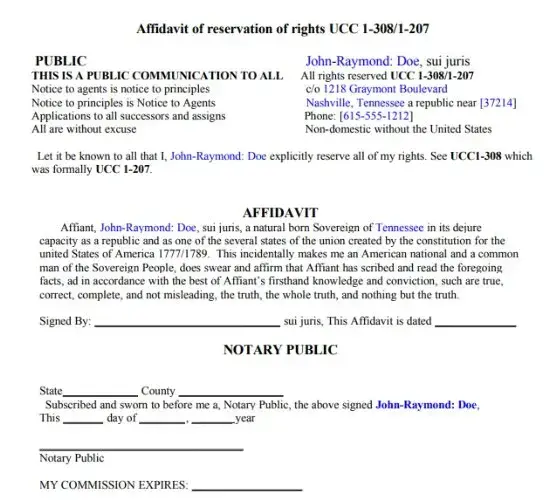Fill a Valid Ucc 1 308 Form
The UCC 1-308 form, also known as the Affidavit of Reservation of Rights, serves as a formal declaration that an individual is reserving their rights under the Uniform Commercial Code. This form communicates that the signer does not waive any rights by performing under a contract or agreement, and it emphasizes their sovereignty and independence from certain legal classifications. Understanding this form is crucial for those who wish to assert their rights and clarify their legal standing in various transactions.
Open Ucc 1 308 Editor Now

Fill a Valid Ucc 1 308 Form
Open Ucc 1 308 Editor Now

Open Ucc 1 308 Editor Now
or
Get Ucc 1 308 PDF Form
Your form is waiting for completion
Complete Ucc 1 308 online in minutes with ease.
